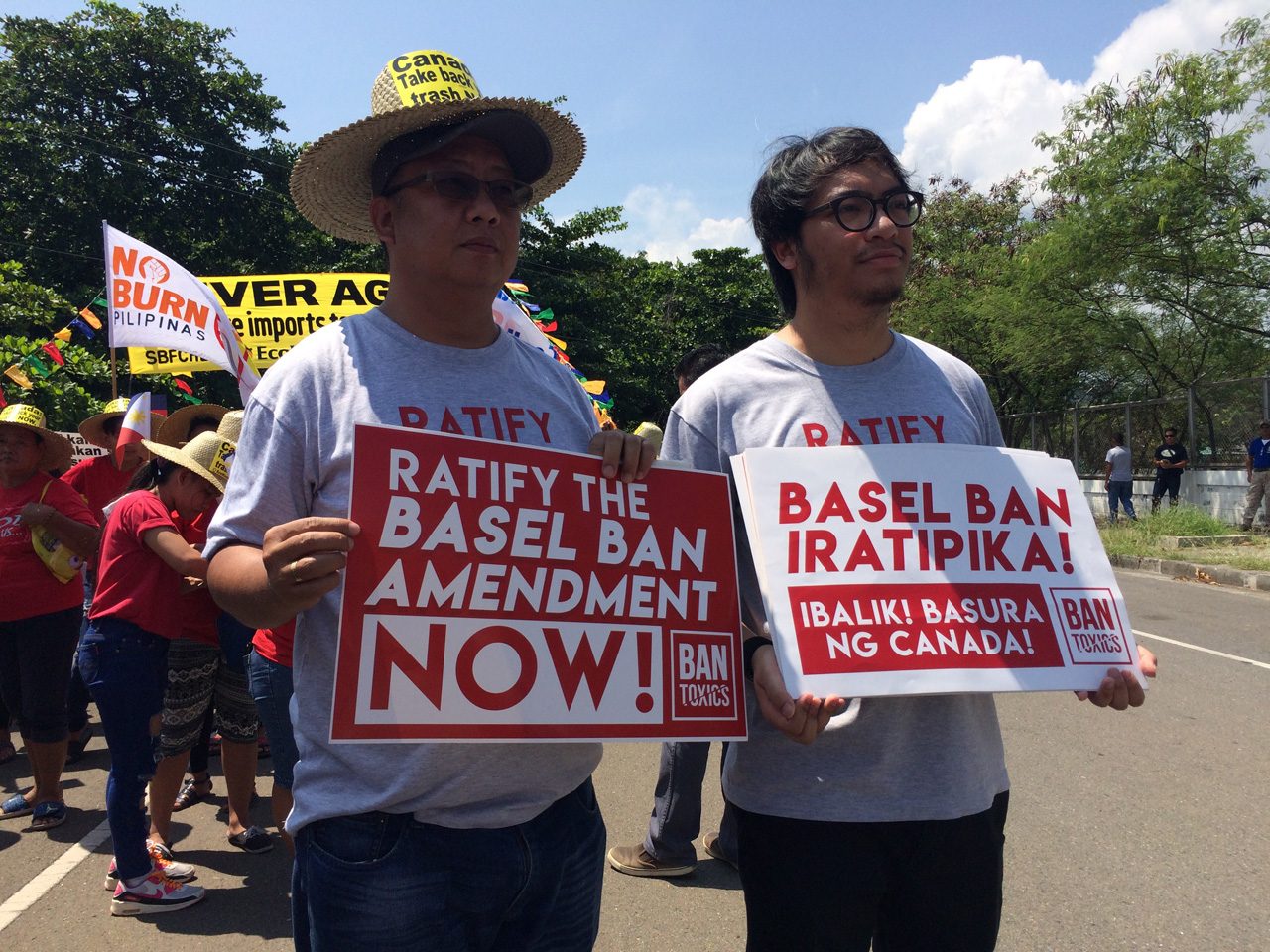SUMMARY
This is AI generated summarization, which may have errors. For context, always refer to the full article.

ZAMBALES, Philippines – Hours before the containers carrying Canada’s garbage leaves the country, environmental groups continued to pressure the government into completely banning all types of waste imports.
These environmental groups on Thursday, May 30, called for the Philippine government to ratify the Basel ban amendment, which prohibits developed countries from exporting waste to developing nations.
Aside from local non-government organizations, also joining the clamor are Ecowaste Coalition, Greenpeace Philippines, Global Alliance for Incinerator Alternatives, BAN Toxics, and the global Break Free from Plastic movement.
The Basel Convention controls the transboundary shipment of hazardous and toxic wastes. The convention recently included plastic waste as among the shipments that needs to have the permission from recipients before these are brought into the ports.
Greenpeace Southeast Asia – Philippines country director Lea Guerrero said that the country is more at risk now of being a destination for smuggled waste from ‘global north countries’ after China imposed a ban on accepting recyclable waste in 2016.
“China used to accept 51% of the waste being traded globally. Where is that going? It’s going to Southeast Asian countries that hasn’t imposed bans, haven’t ratified the Basel Convention [amendment],” she added. (READ: Malaysia to ship back hundreds of tons of plastic waste)
According to Greenpeace, a number of Southeast Asian countries from 2016 to 2018 did see an increase in the amount of waste they received. Thailand saw the highest spike from 69,487 tons to 481,381 tons.
The Philippines also saw the amount of waste imports increase from 4,650 tons in 2016 to 11,900 tons in 2018. This adds to the amount of waste already generated in the Philippines, which are mostly made up of single-use plastics.
From 2013 to 2014, 103 shipping containers from Canada were intercepted in the Port of Manila containing mixed wastes, including non-recyclable plastic, waste paper, household waste, electronic wastes, and used adult diapers.
These materials are classified as hazardous, based on the Toxic Substances and Hazardous and Nuclear Waste and Control Act of 1990 (Republic Act 6969). Also, the importation of the shipment violates the Basel Convention, as the contents of the cargo vans were misdeclared as ‘recyclable’.
Environment Undersecretary for Policy, Planning and International Affairs Jonas Leones earlier said that the Department of Environment and Natural Resources (DENR) is working on passing a policy to ban all waste imports within the year.
This comes after 2 more misdeclared cargo from Hong Kong and Australia arrived in Mindanao last February and May, respectively.
But Guerrero said that the government is not moving fast enough as it would still give waste importers a few more months to sneak in garbage. Given DENR’s stance on favoring waste to energy, importing waste might still happen to fuel the energy plants.
“Political will is important to stop waste trade. This is what we saw from other countries that banned it,” Guerrero said.
“[We need] immediately a comprehensive ban and the ratification of the Basel ban amendment if they are serious about stopping the waste trade.” – with a report from Randy V. Datu/Rappler.com
Add a comment
How does this make you feel?
There are no comments yet. Add your comment to start the conversation.